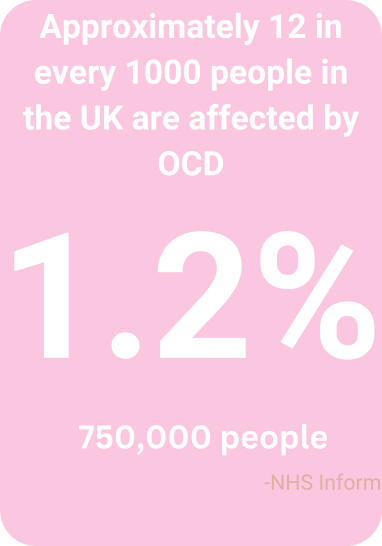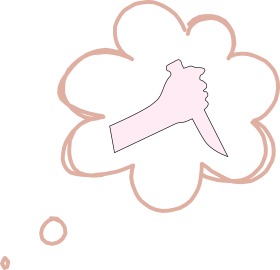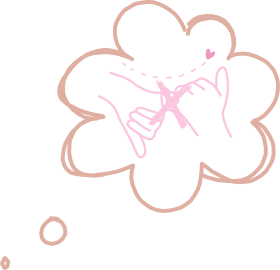What is Obsessive
Complusive Disorder (OCD)?
OCD is a life impacting chronic mental illness
OCD is a mental illness. This means people do not choose to have it, just like people don’t choose to have diabetes or to break a bone but non the less must be treated just as seriously and immediately as diabetes, a broken bone or cancer.

Men, women and children can all be affected by OCD and typically symptoms start to show in early adulthood but can show up at ANY age
Often the sufferer is aware that something isn’t right, but they also feel they must perform a compulsion to neutralize the obsession in an attempt to make the anxiety go away even though they know it is not “normal” which also points to the D in OCD, it’s a disorder, the behavior is disordered.
Everybody who has OCD wishes that they didn’t have it, just like any other illness, physical or mental, no one wants to be ill especially when there is no cure for it.
Image Here
Because OCD is an illness, not a cute quirk that the media portray it to be, it’s important to recognize that having OCD is not your fault, in fact it’s no one’s fault, there are many contributing factors into why someone may develop OCD such as it being hereditary, being in stressful environments and sometimes it just develops for no reason at all.

It’s important to remember that everybody has intrusive thoughts but not everybody can let them float on by.

The difference between those who have OCD and those who don’t is the one with OCD, their thoughts get stuck, so they immediately pay attention to them and try to figure out what the thoughts mean or what the thoughts might mean about them as a person thus becoming an obsession.

Those who don’t have OCD are able to let the thoughts go, possibly with a quick “that was weird” recognition but ultimately it doesn’t bother them at all, and they can go about their business.
Ego-syntonic VS Ego-dystonic
Everybody has intrusive thoughts
To explain the differences between unwanted and wanted thoughts/behaviours in the land of psycho-education, ego-syntonic is used to describe thoughts, feelings, and attributes that align in harmony with one’s values. Ego-dystonic is very much the opposite, the thoughts, feelings, images & urges are unwanted, distressing, intrusive, uninvited and don’t align with ones values.